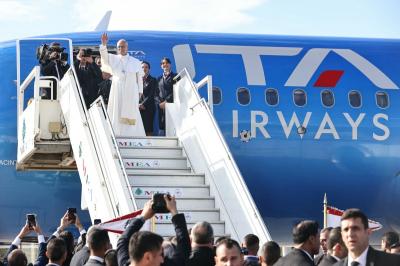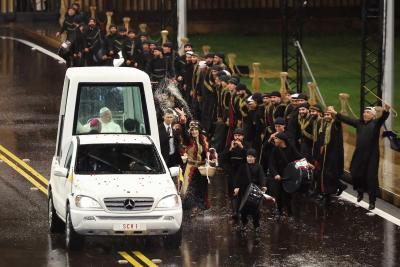The coalition of political parties celebrated the outcome they achieved in the recent local elections in Beirut, as their endorsed list secured victory. The elected candidates genuinely believed they had triumphed and began receiving congratulations and well-wishes.
But who truly won in Beirut? Was it "parity"—that ideal which parties with opposing agendas rallied around, claiming it would ensure "Beirut is for everyone"?
While it is true that Beirut should belong to all its people, the reality today is quite different. Had the choice been left to the people of Beirut, the results would likely have been otherwise. The coalition depended on "Hezbollah" and the "Amal Movement" to secure votes for the unified list. Both groups delivered, channeling their votes in favor of the endorsed slate. When a prominent "Hezbollah" figure was asked why they allied with their political adversaries, he responded that "Hezbollah" had not sought out any alliance; rather, it was the other parties that approached them and their other Shiite partner, as only they could guarantee parity. The vote count in Beirut confirmed several already apparent conclusions: low turnout among Christians, the Sunnis, the largest voting bloc had their votes divided, high turnout among Shiite voters, and a short-term, superficial victory for unlikely allies, merely to maintain appearances. The real decision, however, lies elsewhere.
"Hezbollah" did not join this disparate political coalition for free. The party has a clear agenda, which it has openly declared: to change the cultural character of Beirut. Were the other coalition partners aware of this project, and did they remain in the alliance despite it?
What remains of a coalition when one party claims that another is fundamentally different from itself? What is left of a coalition when "Hezbollah" openly states its intention to change Beirut's cultural face, while others in the alliance oppose this very goal? The issue here is not a clash of civilizations. In fact, there is more uniting these sides than dividing them, but it is their conflicting political affiliations that are at odds—not their cultures or civilizations.
Was all of this merely to achieve a parity that will unravel as soon as the municipal elections are over and each party returns to its own political agenda?
The problem in Beirut is not parity itself. True parity arises from the genuine conviction of voters, especially when political parties claim to distance themselves from elections they describe as local, relying on family dynamics, and bear no political fallouts. Parity cannot be imposed from above or granted as a favor. Neither the majority side is truly convinced of the necessity of including others, nor are the others pleased to have anything handed to them as a token gesture.
Let us acknowledge a painful and bitter reality: had this unlikely coalition not been formed, the results of Beirut municipal elections would have resembled those in Tripoli.
How do we move beyond the charade of parity, which has never truly existed since it was first introduced into our political discourse?
Like every capital, Beirut is composed of distinct districts. The clearest example of this is the way electoral laws have previously divided the city into districts. Each district elects its own municipal council, and the municipality of Beirut is formed from the heads of these district councils under the Muhafiz's leadership.
Holding municipal elections in Beirut based on districts is not a division of the capital, but rather an acknowledgment of the existing realities and a liberation from superficial appearances.
It is time to reconsider the municipal electoral law—especially if there is genuine intent to implement expanded administrative decentralization.
Please post your comments on:
comment@alsafanews.com
 Politics
Politics














